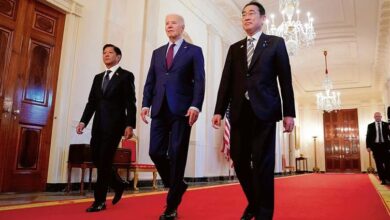When neighbors disregard formal agreements, it is cause for worry, according to EAM Jaishankar on China
Speaking to China on Thursday, External Affairs Minister S Jaishankar acknowledged the reality of power changes in the Indo-Pacific and said that it is concerning when a nation disregards formal agreements with its neighbors.

Speaking at the first Raisina Roundtable in Tokyo, Jaishankar said that one must “deal with that reality” and acknowledge the political and strategic ramifications of “very big shifts” in the capabilities, influence, and aspirations of countries in the Indo-Pacific.
He used New Delhi’s own relationship with China as an example, stating that there had been no violence along the India-China border for over 45 years until things changed in 2020.
And even though we may not agree on a lot of things these days, when a nation kind of disregards formal agreements with a neighbor, it raises concerns about the stability of the relationship and, to be honest, about intentions, EAM Jaishankar said in response to a query.
He said that as the dynamics of the world change, India’s relationship with other nations is also changing, and the difficulty is in establishing “new equilibriums in a less frictional manner.”
Jaishankar said that there has to be a “equilibrium” in Sino-Indian ties and that the government is focusing on bolstering border infrastructure at a recent interactive session at a think tank in New Delhi.
In order to guarantee good relations, the minister also emphasized China’s commitment to border control agreements and peacekeeping along the Line of Actual Control (LAC).
In order to restore peace and tranquility in the border areas, the minister called for complete disengagement in the remaining areas along the Line of Actual Control (LAC) in eastern Ladakh in remarks made a few weeks after the 21st round of the India-China Corps Commander Level Meeting.
According to a Ministry of External Affairs announcement, the two sides pledged to upholding peace and serenity on the ground in the border regions as well as continuing contact via appropriate military and diplomatic channels.
On May 5, 2020, tensions between the two Asian superpowers reached an all-time low after a violent altercation in the Pangong Lake region, leading to a border stalemate.
The two parties had lengthy military and diplomatic discussions before concluding the pullout process from a number of regions in 2021.







